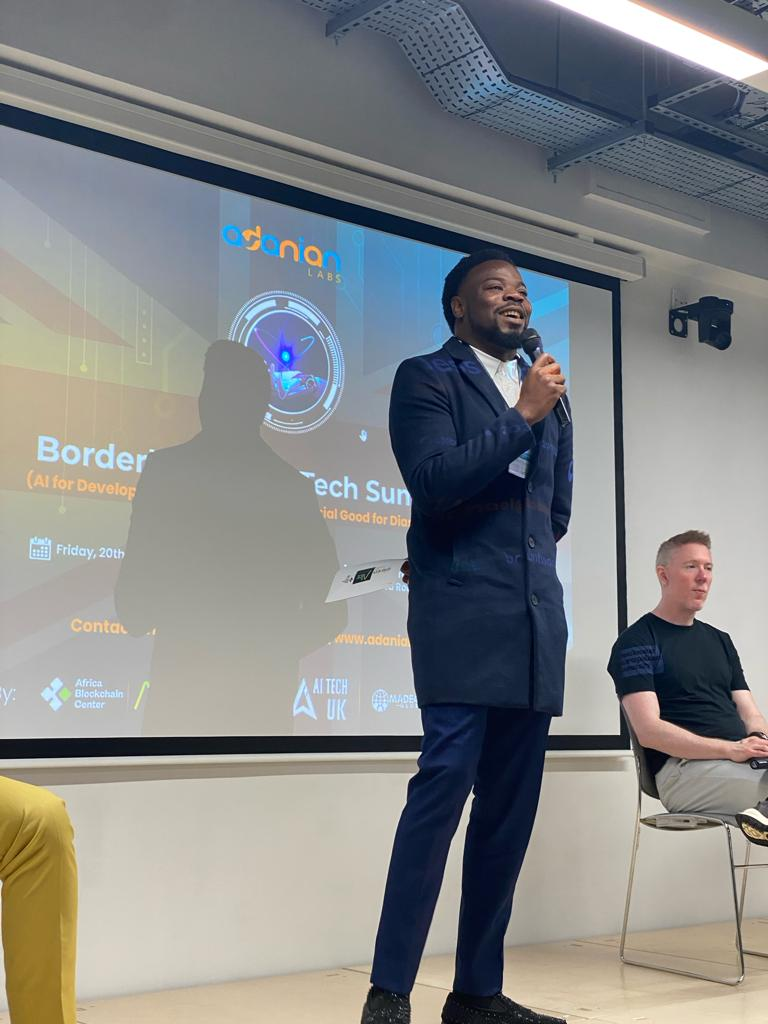Two things troubled me last Friday to the point of distress. One. My wife, who is the real Government of my life, woke up very early in the morning and was watching a video on her phone. This was unusual.
The male voice in the video was lamenting that he never thought a day would come that we would be eating each other in Nigeria. He had read something like that in the Bible but never thought it would ever be possible in our nation.
All of a sudden, he just melted and started weeping, the sort that really comes from deep inside the body. At that point I told my wife I needed to see the video. It was an accident scene, a really crazy one. A minibus chewed over by a trailer laden with fuel. There was death all around, so many corpses on the road but providentially, there were a couple of them with life, desperately in need of human kindness to supervene in their situation.
But this is Nigeria. The people decided to go for fuel instead of saving lives. The man wept, in similitude to that short verse in the Bible, Jesus wept. No heart would see that and not melt.
Two. The story of the Presidency buying a yacht at this point in time. So much uproar since the story broke but only a few could draw a link between the yacht and the first story. The desperate poverty in the nation is bringing out the beast in us, apologies to FELA, but some would still engage in the odyssey of luxury. Pure esoteric bliss, completely incongruous with reality across the nation.
But why the developments really got on the wrong side of me is that two days prior the world had gathered in the United Kingdom to discuss what would seem to us here the near esoterica or things that flabbergast the mind.
The meeting in the UK was at the instance of the British Minister, Rishi Sunak, who is pushing his country to play a central role in the world of artificial intelligence (AI) and be involved in examining its safety, relevance and even the dangers that could be far reaching.
The UK AI Safety Summit which was hosted symbolically at Bletchley Park, home to Second World War Codebreakers, attracted tech experts, global leaders, and AI promoters and developers, including Elon Musk, who had a one hour interview with Prime Minister Sunak, discussing AI.
In a world at war in several places, while large populations are plunging into multidimensional poverty, Rishi Sunak rose above the mundane to provide leadership to his people in a rare field that would have a pronounced effect over the future of the world. That is the way the leader reasons – looking far into the future.
While Sunak was plotting an appearance on the global stage to position his country as an emerging power on AI, President Joe Biden of the United States had a few aces up his sleeve. October 30, 2023, just before the Vice President, Kamala Harris, would leave to represent her country at the UK Summit, Biden issued an Executive Order on Safe, Secure, and Trustworthy Artificial intelligence. The order places American life at the centre of benefits from this unfolding genre of technology while providing safety buffers to ensure protection from its dangers that may be lurking out there.
For instance, the Order requires that developers of the most powerful AI systems share their safety results and other critical information with the US government. Developers are to develop standards, tools, and tests to help ensure that AI systems are safe, secure, and trustworthy.
Having secured the voluntary commitments from 15 leading companies to drive safe, secure and trustworthy developments of AI, Biden with the Executive order hopes “to ensure that America leads the way in seizing the promise and managing the risks of artificial intelligence (AI).”
This was a big deal at the UK Summit and some say it whittled the beat of the conference. Kamala Harris also used the occasion to make some announcements concerning the Biden administration’s efforts in ensuring that AI delivers its best to humanity.
Especially since the launch of ChatGPT nearly a year ago, governments have become increasingly concerned about the growing infinite possibilities of AI, including posing existential threat to humanity, and are seeking inclusive ways to regulate it. Without doubt, AI is pushing its ways into nearly every aspect of human life, from health to education, from retail services to entertainment, including restaurant operations, from housing to hoteling, and from business to some of the most well kept secrets of human operations.
Responsible world leaders don’t want AI to get into rogue hands or rogue states who may deplore it for biological warfare and threaten humanity. Even on its own AI could pose dangers without proper trimmings and regulations.
This underlines the presentation of Kamala Harris where she stated that the Biden administration of which she is an inseparable part, has announced the setting up of the American AI Safety Institute. No doubt America wants to lead in this realm by rallying global coalition. The administration had earlier stated in its Executive Order that, in building a home agenda for AI, it is working with allies and partners abroad on a strong international framework to govern the deployment of AI. That is leadership.
Globally, AI safety remains a major concern. At the opening of the Summit on November 1, Sunak announced the Bletchley Declaration on AI signed by 28 countries, including the US, UK, China, India and Nigeria, as well as the European Union. The countries pledged their commitment to the development of AI but also ensuring international collaboration in mitigating the risks.
“Artificial Intelligence (AI) presents enormous global opportunities: it has the potential to transform and enhance human well-being, peace and prosperity. To realise this, we affirm that, for the good of all, AI should be designed, developed and deployed, and used, in a manner that is safe, in such a way as to be human-centric, trustworthy and responsible. We welcome the international community’s efforts so far to cooperate on AI to promote inclusive economic growth, sustainable development and innovation, to protect human rights and fundamental freedoms, and to foster public trust and confidence in AI systems to fully realise their potential,’’ the document stated.
Without doubt AI will be disruptive and its hold on knowledge and human activities far reaching. In the chat with Sunak, Elon Musk who is a significant player in the AI sector, said this, among others: “There will come a point where no job is needed. You can have a job if you want to have a job for personal satisfaction but the AI will be able to do everything.”
Oh like the entire humanity is heading willy-nilly towards redundancy. Not so fast!
It is a thing of joy that Nigeria is actively involved in the global discourse on AI. Nigeria is listed as one of the countries in President Biden’s global coalition on AI. Nigeria is also listed among the signatories of the Bletchley Declaration.
Global engagement and consultation on AI may likely intensify. In a 31-page document released recently, Dr Bosu Tijani, Minister for Communications, Innovation and Digital Economy, listed AI as one of the focus areas of the ministry under him, saying that Nigeria should achieve a Top 50 ranking in AI Readiness by 2030. The country is currently occupying the 96th position.
It is also gladdening to observe that leaders of powerful nations are offering themselves to lead the world in the pursuit of responsible use of AI. But first, they do it for their national interest before the rest of the world. Especially in science, they hardly contemplate a free for all.
In his famous Man on the Moon speech to congress in 1961, President J.F. Kennedy challenged his country to land a man on the moon within a decade. It was achieved in 1969.
In April 2020, President Donald Trump declared the 5G industry was so powerful that America would never allow other nations to out compete her. His position immediately affected the fortunes of China which had maintained a clear lead in the technology. And, perhaps, still does.
Again both President Biden and Prime Minister Sunak are now providing leadership in the field of AI.
Nigeria’s efforts will be more daunting because it has hunger to cure before technology. However, she seems to have a good place at the AI table and should take advantage of all arising coalitions and declarations to further position herself for the good of the nation and the growth and responsible deployment of AI. Leadership is needed. Leadership.








